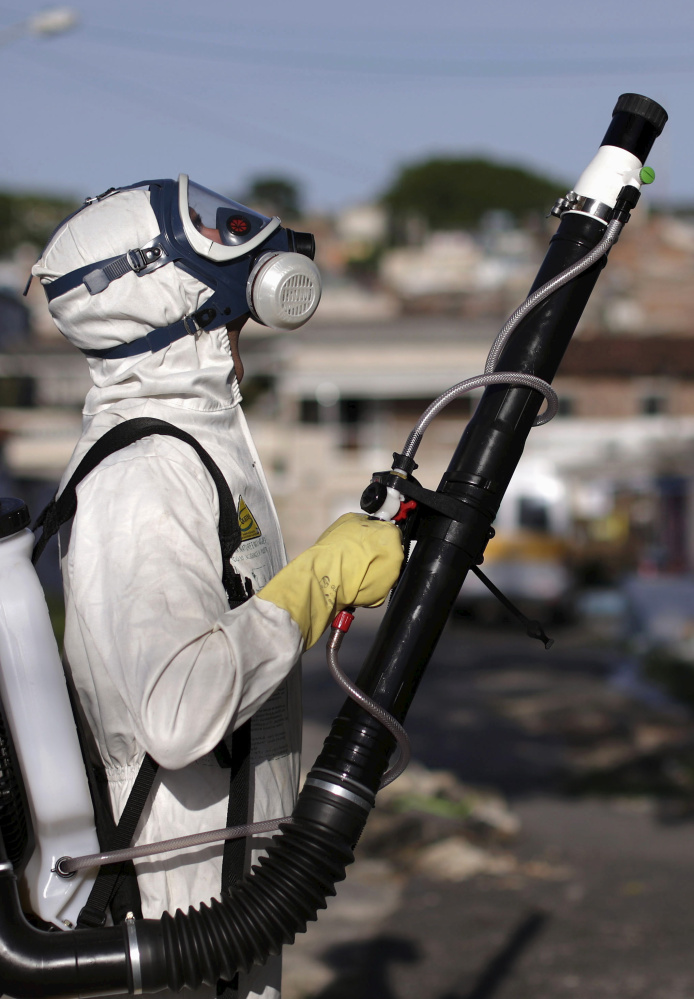GENEVA — The World Health Organization says that traditional insecticide spraying has had no significant impact in slowing dengue, raising major questions about how officials might stop the spread of the Zika virus, also spread by mosquitoes.
At the conclusion of a three-day Zika research and development meeting on Wednesday, WHO’s Marie-Paule Kieny said that “evidence is missing” that the classical ways of fighting dengue have made any substantial dent in cases. She says the same challenge might apply to Zika.
“Everything that was done in the country to control (mosquitoes) apparently didn’t work,” said Jorge Kalil, director of the Butantan Institute in Sao Paolo, Brazil, who attended the meeting. “The problem right now is it’s very difficult to fight the (mosquito), there are billions and billions of insects.”
Kalil said Brazilian officials may try a more targeted approach calling for more involvement from villages and individuals. Kalil was also optimistic that the coming winter season might help reduce mosquito populations.
Kieny said insecticide spraying and other techniques of mosquito control – some that have been used for decades – “haven’t been able to interrupt the transmission of dengue,” and it’s not known whether such methods would work with Zika.
Last month, WHO declared the explosive spread of Zika in the Americas to be a global emergency.
Send questions/comments to the editors.



Success. Please wait for the page to reload. If the page does not reload within 5 seconds, please refresh the page.
Enter your email and password to access comments.
Hi, to comment on stories you must . This profile is in addition to your subscription and website login.
Already have a commenting profile? .
Invalid username/password.
Please check your email to confirm and complete your registration.
Only subscribers are eligible to post comments. Please subscribe or login first for digital access. Here’s why.
Use the form below to reset your password. When you've submitted your account email, we will send an email with a reset code.